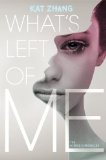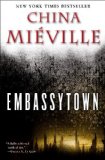Summary | Excerpt | Reviews | Beyond the book | Read-Alikes | Genres & Themes | Author Bio

I love speculative fiction, and I love complicated books that make you think. Home Fires is both of these things. Imagine a cross between Paul Auster and William Gibson (the early years): that's Gene Wolfe's style here. So - if you don't like those authors or dislike reading half a book before you get a good grip on the story, this book is not for you. Home Fires is my first Gene Wolfe novel, but it won't be my last.
The story begins just as Skip is waiting for Chelle to return to Earth from her short tour of duty (that has taken twenty years in Earth-time). While he's been toiling away as a corporate lawyer, she's been fighting aliens on distant planets. He's understandably concerned about reuniting with his still-young wife as a man in his forties. Surprisingly, that is the least-strange situation in this book. Each odd occurrence is followed by yet another, even stranger incident. The narrative never settles. The story starts in the middle, fills in a few blanks with flashbacks, and barrels along while you hang on by your fingernails, hoping that Wolfe will clue you in before adding another layer of complication. It reads like a thriller written by a slightly demented philosopher.
As with most good speculative fiction, this imagined future is used to explore current ideas. In Home Fires, Wolfe explores two big questions: What is love and what is death? Most of the characters are in love, and a few of them are dead (No, not vampires, and not zombies--dead). These ideas sneak in while you're busy running alongside the story. Did I mention I love this kind of book?
Plenty of unlikely events are, thanks to the quality of the writing, entirely believable. But much of the plot hovers just on the edge of credulity, adding to the tension. If the book has a weakness, it is the characters. I was very interested in finding out what happens to them, but I didn't feel much of an emotional connection to them. Perhaps this is, in part, because the characters themselves are so disconnected from their own emotions that much of the book involves them figuring out how they feel about each other and themselves.
Home Fires ends with many satisfying answers, and some brand-new questions. I immediately wanted to read it again, to get a second look at some of the ideas I hadn't grasped fully when they first presented themselves. This strange, surprising book is clearly written by a master. Although definitely not a book for everyone, I think Home Fires is great fun, and well worth the work involved on the reader's part.
![]() This review was originally published in The BookBrowse Review in March 2011, and has been updated for the
February 2012 edition.
Click here to go to this issue.
This review was originally published in The BookBrowse Review in March 2011, and has been updated for the
February 2012 edition.
Click here to go to this issue.

If you liked Home Fires, try these:

by Kat Zhang
Published 2013
In this emotionally haunting debut from Kat Zhang, Eva and Addie are two souls sharing one body…and a dangerous secret.

by China Mieville
Published 2012
With Embassytown Miéville has crafted an extraordinary novel that is not only a moving personal drama but a gripping adventure of alien contact and war.
When all think alike, no one thinks very much
Click Here to find out who said this, as well as discovering other famous literary quotes!
Your guide toexceptional books
BookBrowse seeks out and recommends the best in contemporary fiction and nonfiction—books that not only engage and entertain but also deepen our understanding of ourselves and the world around us.